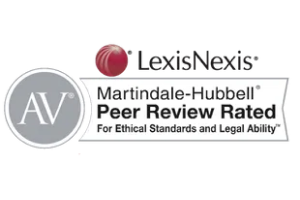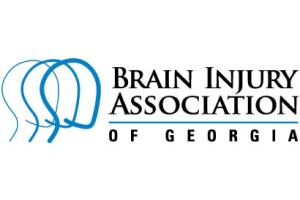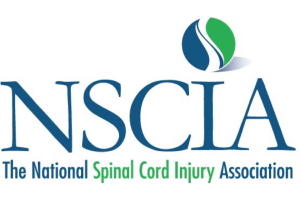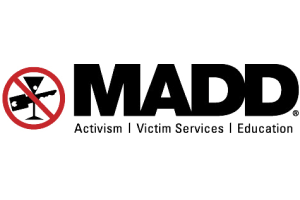Georgia Wrongful Death Statutes
Georgia Wrongful Death Statutes
Below are the current versions of the five Code provisions which govern civil wrongful death claims in Georgia. These statutes make up what is referred to as the Georgia Wrongful Death Act. There are hundreds of published appellate court decisions by the Georgia Supreme Court and Georgia Court of Appeals interpreting these wrongful death statutes. Collectively, these statutes and the many appellate decisions interpreting the same constitute the wrongful death law in Georgia. At the end, the full text of Georgia’s “survival” statutes (O.C.G.A. §§ 9-2-40 and 9-2-41) are also provided.
O.C.G.A. § 51-4-1 Definitions
As used in this chapter, the term:
(1) “Full value of the life of the decedent, as shown by the evidence” means the full value of the life of the decedent without deducting for any of the necessary or personal expenses of the decedent had he lived.
(2) “Homicide” includes all cases in which the death of a human being results from a crime, from criminal or other negligence, or from property which has been defectively manufactured, whether or not as the result of negligence.
O.C.G.A. § 51-4-2 Homicide of spouse or parent; survival of action
(a) The surviving spouse or, if there is no surviving spouse, a child or children, either minor or sui juris, may recover for the homicide of the spouse or parent the full value of the life of the decedent, as shown by the evidence.
(b) (1) If an action for wrongful death is brought by a surviving spouse under subsection (a) of this Code section and the surviving spouse dies pending the action, the action shall survive to the child or children of the decedent.
(2) If an action for wrongful death is brought by a child or children under subsection (a) of this Code section and one of the children dies pending the action, the action shall survive to the surviving child or children.
(c) The surviving spouse may release the alleged wrongdoer without the concurrence of the child or children or any representative thereof and without any order of court, provided that such spouse shall hold the consideration for such release subject to subsection (d) of this Code section.
(d) (1) Any amount recovered under subsection (a) of this Code section shall be equally divided, share and share alike, among the surviving spouse and the children per capita, and the descendants of children shall take per stirpes, provided that any such recovery to which a minor child is entitled and which equals less than $15,000.00 shall be held by the natural guardian of the child, who shall hold and use such money for the benefit of the child and shall be accountable for same; and any such recovery to which a minor child is entitled and which equals $15,000.00 or more shall be held by a guardian of the property of such child. (2) Notwithstanding paragraph (1) of this subsection, the surviving spouse shall receive no less than one-third of such recovery as such spouse’s share.
(e) No recovery had under (a) of this Code section shall be subject to any debt or liability of the decedent.
(f) In actions for recovery under this Code section, the fact that a child has been born out of wedlock shall be no bar to recovery.
O.C.G.A. § 51-4-4 Homicide of a child
The right to recover for the homicide of a child shall be as provided in Code Section 19-7-1.
O.C.G.A. § 51-4-5 Recovery by administrator or executor of decedent
(a) When there is no person entitled to bring an action for the wrongful death of a decedent under Code Section 51-4-2 or 51-4-4, the administrator or executor of the decedent may bring an action for and may recover and hold the amount recovered for the benefit of the next of kin. In any such case the amount of the recovery shall be the full value of the life of the decedent.
(b) When death of a human being results from a crime or from criminal or other negligence, the personal representative of the deceased person shall be entitled to recover for the funeral, medical, and other necessary expenses resulting from the injury and death of the deceased person.
O.C.G.A. § 19-7-1 Parental power; recovery for homicide of child
(a) Until a child reaches the age of 18 or becomes emancipated, the child shall remain under the control of his or her parents, who are entitled to the child’s services and the proceeds of the child’s labor. In the event that a court has awarded custody of the child to one parent, only the parent who has custody of the child is entitled to the child’s services and the proceeds of the child’s labor.
(b) Parental power shall be lost by:
(1) Voluntary contract releasing the right to a third person;
(2) Consent to the adoption of the child by a third person;
(3) Failure to provide necessaries for the child or abandonment of the child;
(4) Consent to the child’s receiving the proceeds of his own labor, which consent shall be revocable at any time;
(5) Consent to the marriage of the child, who thus assumes inconsistent responsibilities; or
(6) Cruel treatment of the child. (b.1) Notwithstanding subsections (a) and (b) of this Code section or any other law to the contrary, in any action involving the custody of a child between the parents or either parent and a third party limited to grandparent, great-grandparent, aunt, uncle, great aunt, great uncle, sibling, or adoptive parent, parental power may be lost by the parent, parents, or any other person if the court hearing the issue of custody, in the exercise of its sound discretion and taking into consideration all the circumstances of the case, determines that an award of custody to such third party is for the best interest of the child or children and will best promote their welfare and happiness. There shall be a rebuttable presumption that it is in the best interest of the child or children for custody to be awarded to the parent or parents of such child or children, but this presumption may be overcome by a showing that an award of custody to such third party is in the best interest of the child or children. The sole issue for determination in any such case shall be what is in the best interest of the child or children.
(c)(1) In every case of the homicide of a child, minor or sui juris, there shall be some party entitled to recover the full value of the life of the child, either as provided in this Code section or as provided in Chapter 4 of Title 51.
(2) If the deceased child does not leave a spouse or child, the right of recovery shall be in the parent or parents, if any, given such a right by this paragraph as follows:
(A) If the parents are living together and not divorced, the right shall be in the parents jointly;
(B) If either parent is deceased, the right shall be in the surviving parent; or
(C) If both parents are living but are divorced, separated, or living apart, the right shall be in both parents. However, if the parents are divorced, separated, or living apart and one parent refuses to proceed or cannot be located to proceed to recover for the wrongful death of a child, the other parent shall have the right to contract for representation on behalf of both parents, thereby binding both parents, and the right to proceed on behalf of both parents to recover for the homicide of the child with any ultimate recovery to be shared by the parents as provided in this subsection. Unless a motion is filed as provided in paragraph (6) of this subsection, such a judgment shall be divided equally between the parents by the judgment; and the share of an absent parent shall be held for such time, on such terms, and with such direction for payment if the absent parent is not found as the judgment directs. Payment of a judgment awarded to the parent or parents having the cause of action under this subparagraph or the execution of a release by a parent or parents having a cause of action under this subparagraph shall constitute a full and complete discharge of the judgment debtor or releasee. If, after two years from the date of any recovery, the share of an absent parent has not been paid to the absent parent, the other parent can petition the court for the funds, and the recovery, under appropriate court order, shall be paid over to the parent who initiated the recovery.
(3) The intent of this subsection is to provide a right of recovery in every case of the homicide of a child who does not leave a spouse or child. If, in any case, there is no right of action in a parent or parents under the above rules, the right of recovery shall be determined by Code Section 51-4-5.
(4) In this subsection the terms “homicide” and “full value of the life” shall have the meaning given them in Chapter 4 of Title 51.
(5) In actions for recovery, the fact that the child was born out of wedlock shall be no bar to recovery.
(6) For cases in which the parents of a deceased child are divorced, separated, or living apart, a motion may be filed by either parent prior to trial requesting the judge to apportion fairly any judgment amounts awarded in the case. Where such a motion is filed, a judgment shall not be automatically divided. A post-judgment hearing shall be conducted by the judge at which each parent shall have the opportunity to be heard and to produce evidence regarding that parent’s relationship with the deceased child. The judge shall fairly determine the percentage of the judgment to be awarded to each parent. In making such a determination, the judge shall consider each parent’s relationship with the deceased child, including permanent custody, control, and support, as well as any other factors found to be pertinent. The judge’s decision shall not be disturbed absent an abuse of discretion.
Georgia’s “Survival” Statutes
O.C.G.A. § 9-2-40 When action does not abate on death of party
No action shall abate by the death of either party, where the cause of action shall in any case survive to or against the legal representatives of the deceased party, either in the same or any other form of action.
O.C.G.A. § 9-2-41 Action for tort and certain causes of action not to abate by death of either party
No action for a tort shall abate by the death of either party, where the wrongdoer received any benefit from the tort complained of; nor shall any action or cause of action for the recovery of damages for homicide, injury to the person or injury to property abate by the death of either party. The cause of action, in case of the death of the plaintiff and in the event there is no right of survivorship in any other person, shall survive to the personal representative of the deceased plaintiff. In case of the death of the defendant, the cause of action shall survive against said defendant’s personal representative. However, in the event of the death of the wrongdoer before an action has been brought against him, the personal representative of the wrongdoer in such capacity shall be subject to the action just as the wrongdoer himself would have been during his life, provided that there shall be no punitive damages against the personal representative.
Obtain Legal Advice from an Atlanta Wrongful Death Attorney
Our law firm has considerable experience with wrongful death litigation throughout all parts of Georgia. Please contact us if you want to speak with a Georgia trial attorney about the wrongful death of your spouse, child or other family member.









